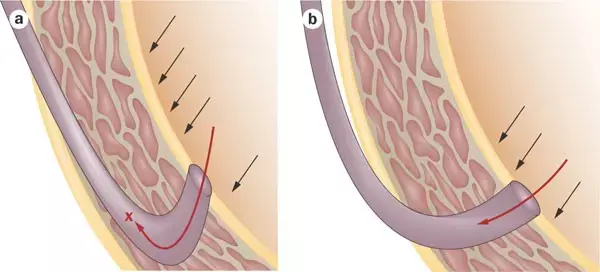- Home
- Medical news & Guidelines
- Anesthesiology
- Cardiology and CTVS
- Critical Care
- Dentistry
- Dermatology
- Diabetes and Endocrinology
- ENT
- Gastroenterology
- Medicine
- Nephrology
- Neurology
- Obstretics-Gynaecology
- Oncology
- Ophthalmology
- Orthopaedics
- Pediatrics-Neonatology
- Psychiatry
- Pulmonology
- Radiology
- Surgery
- Urology
- Laboratory Medicine
- Diet
- Nursing
- Paramedical
- Physiotherapy
- Health news
- Fact Check
- Bone Health Fact Check
- Brain Health Fact Check
- Cancer Related Fact Check
- Child Care Fact Check
- Dental and oral health fact check
- Diabetes and metabolic health fact check
- Diet and Nutrition Fact Check
- Eye and ENT Care Fact Check
- Fitness fact check
- Gut health fact check
- Heart health fact check
- Kidney health fact check
- Medical education fact check
- Men's health fact check
- Respiratory fact check
- Skin and hair care fact check
- Vaccine and Immunization fact check
- Women's health fact check
- AYUSH
- State News
- Andaman and Nicobar Islands
- Andhra Pradesh
- Arunachal Pradesh
- Assam
- Bihar
- Chandigarh
- Chattisgarh
- Dadra and Nagar Haveli
- Daman and Diu
- Delhi
- Goa
- Gujarat
- Haryana
- Himachal Pradesh
- Jammu & Kashmir
- Jharkhand
- Karnataka
- Kerala
- Ladakh
- Lakshadweep
- Madhya Pradesh
- Maharashtra
- Manipur
- Meghalaya
- Mizoram
- Nagaland
- Odisha
- Puducherry
- Punjab
- Rajasthan
- Sikkim
- Tamil Nadu
- Telangana
- Tripura
- Uttar Pradesh
- Uttrakhand
- West Bengal
- Medical Education
- Industry
Endoscopic injection bests antibiotics for vesicoureteral reflux in children, reveals study

Endoscopic injection bests antibiotics for vesicoureteral reflux in children reveals a study published in Pediatric Surgery International.
This study evaluated the outcome of pediatric patients with primary vesicoureteral reflux (VUR) and compared of the treatments between continued antibiotic prophylaxis (CAP) and endoscopic injection. The clinical data of children diagnosed with primary vesicoureteral reflux from March 2015 to June 2020 who were treated with antibiotics or endoscopic injection were reviewed. Antibiotic was the first-chosen treatment after the diagnosis of VUR in children. Endoscopic treatment consisted of injection of dextran hyaluronic acid copolymer (DX/HA) into the ureteral opening under direct cystoscopy guidance. Results: Fifty-two children (35 males, 17 females) were included in this study, and for a total 90 ureters (14 unilateral, 38 bilateral) were diagnosed with vesicoureteral reflux by Voiding cystourethrography (VCUG). Twenty-two children were treated with antibiotics (8 unilateral, 14 bilateral), for a total of 36 ureters; thirty children were treated by endoscopic injection (6 unilateral, 24 bilateral), for a total of 54 ureters. The injection surgery took 36 ± 17 min including duration of general anesthesia and circumcision and the hospital stay was 2.3 ± 1.3 days. All male patients underwent circumcision simultaneously.
There were no drug and allergic reactions in the antibiotic group, and no postoperative complications occurred in the injection group. With 23 months (13–63 months) of mean follow-up, the resolution rate, defined as radiological disappearance of VUR, was 36.1% (13/36) in the antibiotic group and 57.4% (31/54) in the injection group (P = 0.048). Two cases of bilateral reflux in the injection group required a second injection before resolution could be achieved. Thus, the overall success rate of injection was 64.8% (35/54). 9 cases (9/18, 50%) in the antibiotic group had renal scars on DMSA scans, while this was seen in 20 cases (20/23, 86.9%) in the injection group. There was a statistically significant difference between the two groups (P = 0.010).The positive rates of ultrasound between the antibiotic group and the injection group were 45.5% (10/22) and 80.0% (24/30), respectively. There was a statistically significant difference between the two groups in positive rates of ultrasound (P = 0.010). Endoscopic injection is easy to operate with short surgical time and hospital stay, so it is a safe and feasible treatment. For the treatment of primary vesicoureteral reflux in children, the radiological resolution rate of endoscopic injection is better than antibiotic therapy. In this study, the presence of kidney scars on DMSA and the dilated of the collecting system on ultrasound are the indications for endoscopic injection.
Reference:
Yang, Z., Dai, K., Sun, X. et al. Comparison and clinical analysis of antibiotics and endoscopic injection for vesicoureteral reflux in children. Pediatr Surg Int 40, 184 (2024). https://doi.org/10.1007/s00383-024-05780-3
Dr. Shravani Dali has completed her BDS from Pravara institute of medical sciences, loni. Following which she extensively worked in the healthcare sector for 2+ years. She has been actively involved in writing blogs in field of health and wellness. Currently she is pursuing her Masters of public health-health administration from Tata institute of social sciences. She can be contacted at editorial@medicaldialogues.in.
Dr Kamal Kant Kohli-MBBS, DTCD- a chest specialist with more than 30 years of practice and a flair for writing clinical articles, Dr Kamal Kant Kohli joined Medical Dialogues as a Chief Editor of Medical News. Besides writing articles, as an editor, he proofreads and verifies all the medical content published on Medical Dialogues including those coming from journals, studies,medical conferences,guidelines etc. Email: drkohli@medicaldialogues.in. Contact no. 011-43720751


